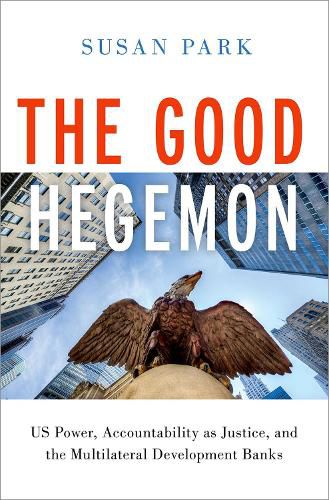Readings Newsletter
Become a Readings Member to make your shopping experience even easier.
Sign in or sign up for free!
You’re not far away from qualifying for FREE standard shipping within Australia
You’ve qualified for FREE standard shipping within Australia
The cart is loading…






In 1993 the World Bank created the revolutionary World Bank Inspection Panel and, with it, a precedent under international law that allowed people to seek recourse for harm resulting from the projects the Bank financed in developing countries. This was the first time that a universal international organization recognized and responded to its impact on individuals. Within a decade of the Inspection Panel, other Multilateral Development Banks (MDBs) created similar accountability mechanisms. These mechanisms embody a norm of accountability as justice that provides recourse for environmentally and socially damaging behavior through a formal sanctioning process.
In The Good Hegemon, Susan Park analyzes the accountability as justice norm: its creation, how it functions, and whether it holds the MDBs to account. Park tackles all of these issues using three central arguments. First, the book explains how the United States promoted this norm during debates over how to maintain MDB efficiency and effectiveness in the 1990s. Building on its history of using accountability as control, the US sought to establish a norm of accountability as justice for all the MDBs, even when pressure from activists was absent or muted. Second, Park traces how the MDBs resisted conforming to the norm, leading the US to exert its influence and demand that the Banks reformulate the mechanisms. Third, the book demonstrates how the MDBs have institutionalized the norm over time: improving the accountability mechanisms’ accessibility, transparency, independence, responsiveness to affected people, and the effectiveness of compliance investigations and MDB monitoring. Park also shows that, despite these gains, the accountability as justice norm is still corrective rather than preemptive; it tends to only come into effect after a transgression by the Banks.
A rigorous analysis of how institutions react to norm creation and diffusion-The Good Hegemon sheds new light on the responsibilities of international institutions and tells the story of how the US uses its influence for good on the global stage.
$9.00 standard shipping within Australia
FREE standard shipping within Australia for orders over $100.00
Express & International shipping calculated at checkout
In 1993 the World Bank created the revolutionary World Bank Inspection Panel and, with it, a precedent under international law that allowed people to seek recourse for harm resulting from the projects the Bank financed in developing countries. This was the first time that a universal international organization recognized and responded to its impact on individuals. Within a decade of the Inspection Panel, other Multilateral Development Banks (MDBs) created similar accountability mechanisms. These mechanisms embody a norm of accountability as justice that provides recourse for environmentally and socially damaging behavior through a formal sanctioning process.
In The Good Hegemon, Susan Park analyzes the accountability as justice norm: its creation, how it functions, and whether it holds the MDBs to account. Park tackles all of these issues using three central arguments. First, the book explains how the United States promoted this norm during debates over how to maintain MDB efficiency and effectiveness in the 1990s. Building on its history of using accountability as control, the US sought to establish a norm of accountability as justice for all the MDBs, even when pressure from activists was absent or muted. Second, Park traces how the MDBs resisted conforming to the norm, leading the US to exert its influence and demand that the Banks reformulate the mechanisms. Third, the book demonstrates how the MDBs have institutionalized the norm over time: improving the accountability mechanisms’ accessibility, transparency, independence, responsiveness to affected people, and the effectiveness of compliance investigations and MDB monitoring. Park also shows that, despite these gains, the accountability as justice norm is still corrective rather than preemptive; it tends to only come into effect after a transgression by the Banks.
A rigorous analysis of how institutions react to norm creation and diffusion-The Good Hegemon sheds new light on the responsibilities of international institutions and tells the story of how the US uses its influence for good on the global stage.